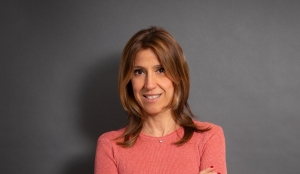Copenhagen Fashion Week faces greenwashing allegations
Copenhagen Fashion Week (CPHFW) and seven Danish fashion brands have recently come under the scrutiny of the Danish Consumer Ombudsman[1] for alleged greenwashing practices. The accusations, brought forward on February 18th 2025 by the advisory firm Continual[2] and Forbrugerrådet Tænk[3], claim that these entities have misled consumers by overstating their sustainability efforts.
The Allegations
Continual and Forbrugerrådet Tænk argue that CPHFW and the Danish brands, among other things, use claims that:
- are inaccurate or irrelevant,
- refer to initiatives or products that do not significantly promote sustainability, and
- may mislead consumers into believing that these companies and/or products are less environmentally impactful than they actually are.
Regarding Copenhagen Fashion Week, the complaint focuses on the nineteen so-called “sustainability requirements” established by the organization that companies must meet to be considered for the fashion week's calendar. It is argued that such requirements (i) are not genuine since it was discovered that some brands, in practice, do not comply with them, and (ii) do not significantly promote sustainability and thus are not relevant for the consumer. On top of that, it is also argued that CPHFW often refers to participating companies with terms such as "ecologically conscious production" and "sustainable fashion brand."
Regarding the seven Danish brands, they are also accused of using terms such as "sustainable” “responsible” and “eco-friendly” to advertise their products that could be misleading without substantial evidence to support them.
This case may also end up going abroad. In the complaint, Continual and Forbrugerrådet Tænk, in fact, observe that, due to the introduction of the nineteen sustainability requirements, CPHFW has been named "the world's most sustainable fashion week," by British Vogue, and organizations like Oslo Runway, the Norwegian Fashion Hub, Berlin Fashion Week, the German Fashion Council, and the British Fashion Council have also adopted these standards. Therefore, the complainants request the Consumer Ombudsman to consider whether this issue should be assessed also at the EU level.
The response from Copenhagen Fashion Week
Copenhagen Fashion Week's director, Cecilie Thorsmark, responded to the allegations by stating that the organization does not recognize the accusations of greenwashing.
She also argued that the sustainability requirements are only one of several entry requirements to be able to participate in the show calendar, and do not equal to any approval by CPHFW of the individual brands and their products as being sustainable. Such requirements are only a tool developed to guide brands in their efforts to become more environmentally responsible.
Conclusion
The Danish Consumer Ombudsman is now reviewing the complaint and will decide whether to pursue further action against Copenhagen Fashion Week and the seven Danish brands.
The greenwashing allegations against Copenhagen Fashion Week and the Danish fashion brands emphasize the need for transparency and accountability in sustainability claims. As the fashion industry continues to grapple with its environmental impact, consumers and watchdog organizations play a crucial role in ensuring that brands live up to their green promises.
And given the increasing importance of sustainability to the fashion industry, it cannot be ruled out that similar issues and challenges may soon arise in relation to other fashion weeks around the world. The whole fashion world is increasingly focusing on the sustainability of brands and products. Therefore, what happened in Denmark could easily happen during other fashion weeks in the future.
[1] The Danish authority that ensures that trade, business, and public enterprises comply with the Danish Marketing Practices Act and the principles of fair marketing practices in general.
[2] Continual is an advisory firm and anti-greenwashing specialist (https://www.continual.dk/).
[3] Forbrugerrådet Tænk is an NGO that works to ensure that it is safe to be a consumer in Denmark (https://taenk.dk/).




